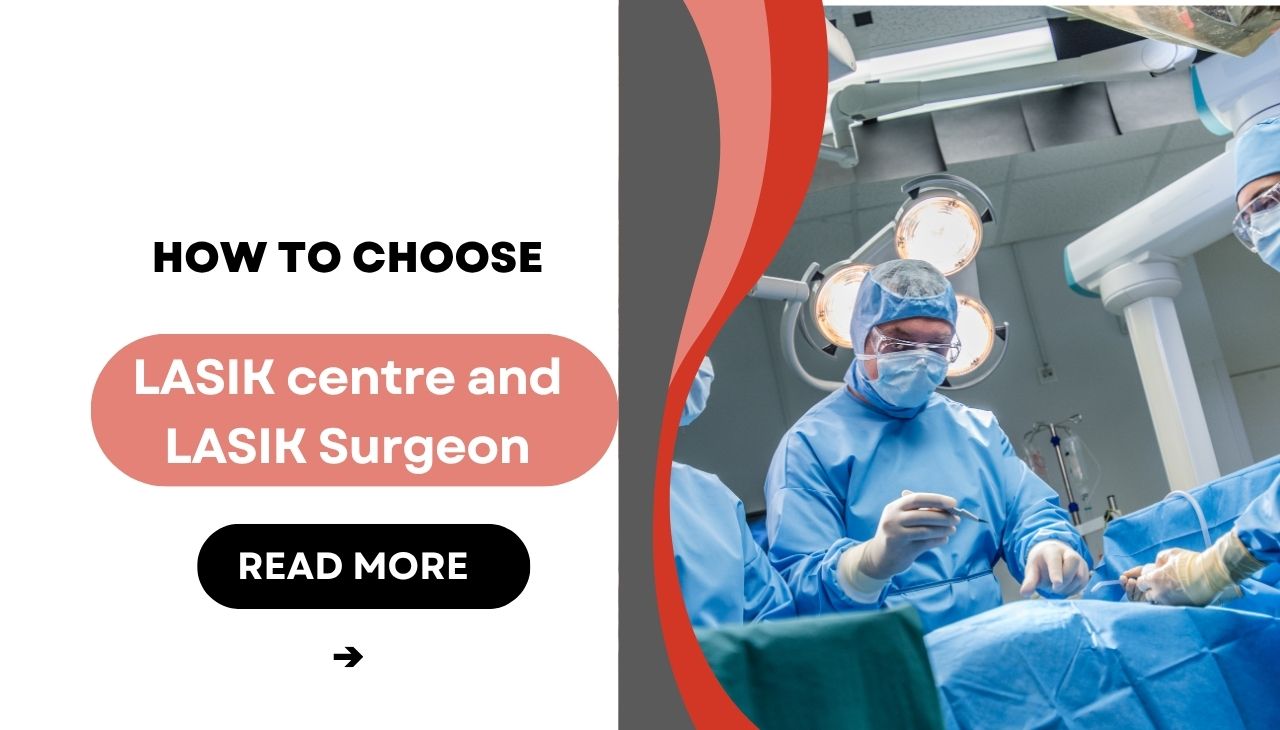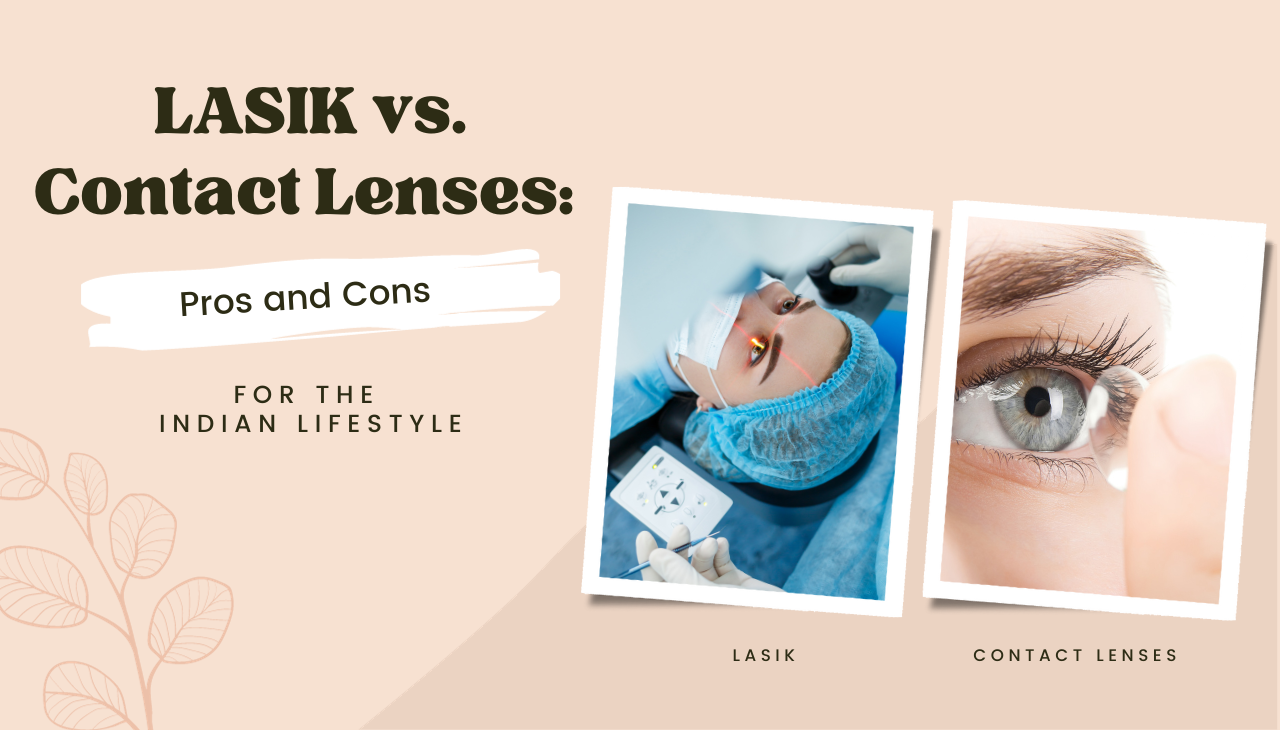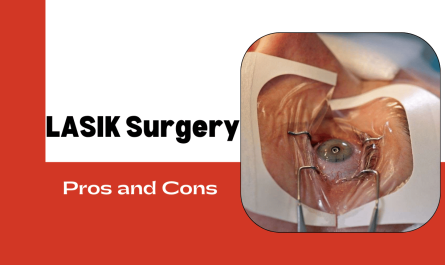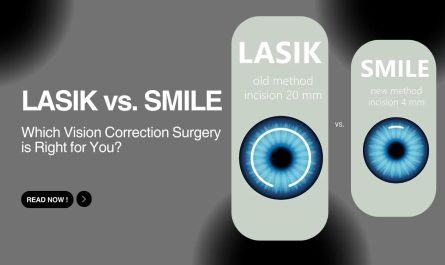Choosing to undergo LASIK eye surgery is a big step toward clearer, glasses-free vision. But just as important as the decision to get LASIK is choosing the right centre and surgeon.
Not all LASIK providers offer the same level of care, technology, or experience. A wrong choice can lead to discomfort, complications, or poor outcomes.
This guide will help you understand the essential factors in selecting a LASIK centre and surgeon. You’ll learn what to look for, questions to ask, and how to make a confident, informed decision.
Let’s walk through what really matters when it comes to your eyes.
Check Surgeon’s Qualifications and Experience
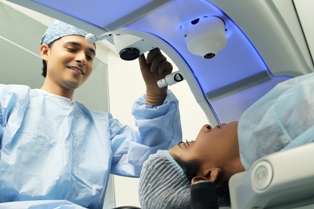
When choosing a LASIK surgeon, begin with their credentials.
Look for:
- A medical degree in ophthalmology from a recognized institution
- Fellowship or specialized training in corneal and refractive surgery
- Registration with the Medical Council of India or local governing body
Beyond degrees, experience matters. A surgeon who has performed thousands of LASIK procedures is more likely to handle complexities with precision and confidence.
Ask the clinic:
- How many LASIK procedures has the surgeon performed?
- How often do they perform LASIK each week or month?
- Have they dealt with your specific vision issue (e.g., high myopia, astigmatism)?
More procedures mean better outcomes.
Understand the Types of LASIK Technology Used
Not all LASIK is the same. Over the years, technology has evolved.
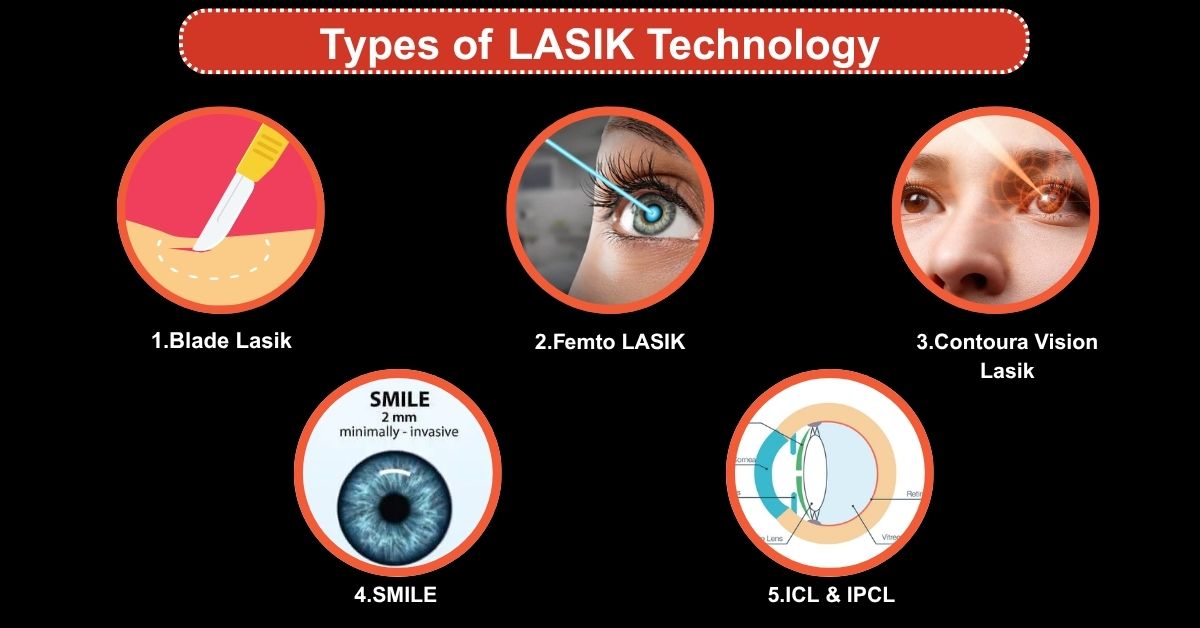
Make sure your chosen centre uses the latest FDA-approved equipment for diagnostics and surgery.
Common types include:
- Blade LASIK (uses a microkeratome)
- Bladeless or Femto LASIK (uses laser for flap creation)
- Contoura Vision LASIK (customized corneal mapping)
- SMILE (minimally invasive, flapless procedure)
- ICL/IPCL (implantable lenses for thin corneas or high refractive errors)
Ask:
- What technology will be used in my case?
- Is the equipment regularly maintained and calibrated?
- How old is the laser machine?
Newer machines improve safety, accuracy, and recovery time.
Evaluate Pre-operative Testing and Consultation
A good LASIK centre will never rush you into surgery.
Pre-operative assessment is critical. It includes:
- Detailed eye exams
- Corneal thickness measurement
- Topography and wavefront mapping
- Dry eye evaluation
- Pupil size measurement in low light
If a centre skips or shortens these tests, consider it a red flag.
Ask:
- What tests will be done before surgery?
- Will I be a good candidate for LASIK or should I consider another procedure?
- Can you walk me through my topography results?
An honest evaluation builds trust and avoids complications.
Check the Centre’s Reputation
Reputation tells a lot about a clinic’s consistency and patient satisfaction.

Here’s how you can evaluate:
- Google reviews and patient testimonials
- Word of mouth from friends or family
- Social media presence and educational content
- Clinic awards or accreditations
Look for common patterns in reviews—are patients happy with the results and follow-up?
Be cautious of centres offering heavy discounts or pushing urgency.
Reliable centres focus on long-term outcomes, not volume.
Post-operative Care and Follow-up
Your care doesn’t end after surgery. In fact, proper recovery depends on aftercare.
Ask the centre:
- How many follow-up visits are included?
- What happens if I develop dry eyes or hazy vision?
- Do you provide emergency care or support after hours?
Some vision fluctuations or discomfort are normal in the first week. But you’ll want easy access to your surgeon if issues arise.
Cost Transparency and Financing Options
LASIK is an investment. While cost shouldn’t be the only deciding factor, you need clarity on what’s included.
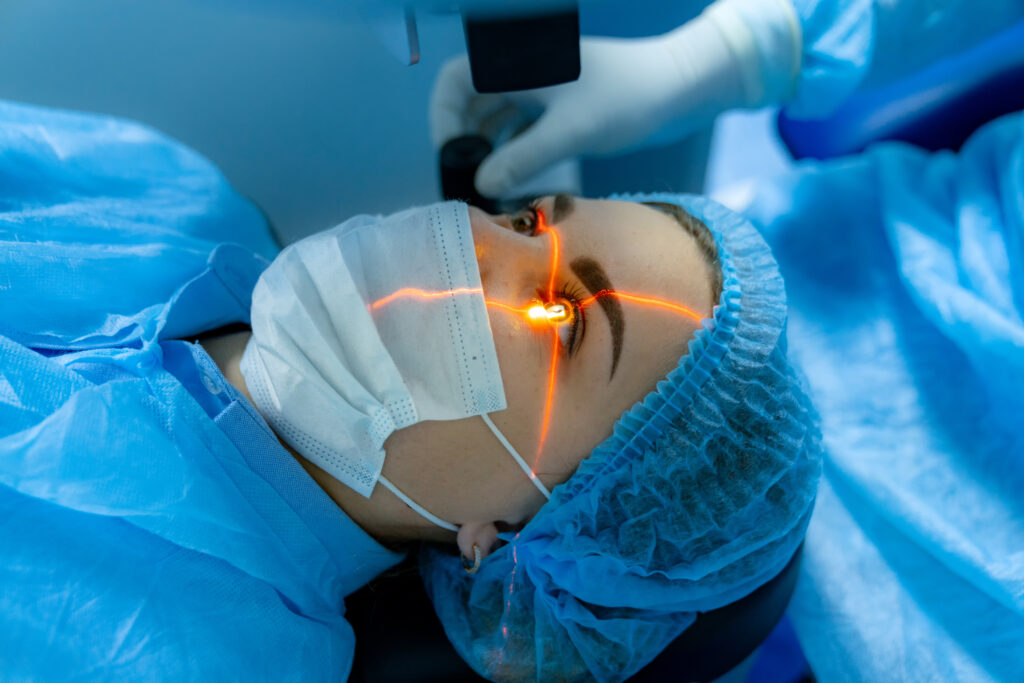
Check:
- Are all pre-op tests included?
- Are follow-up visits part of the package?
- What if enhancement or retreatment is needed?
Many centres offer EMI or insurance support for eligible cases. Ask for written cost breakdowns before committing.
Hygiene and Infrastructure
Your eye is delicate. LASIK is safe—but only if performed in a sterile, well-maintained environment.
Visit the centre beforehand and observe:
- Cleanliness in waiting areas and operating rooms
- Staff professionalism
- Comfort of diagnostic equipment
- Use of protective gear (gloves, masks, covers)
If something feels off, trust your instincts.
Surgeon’s Communication Style
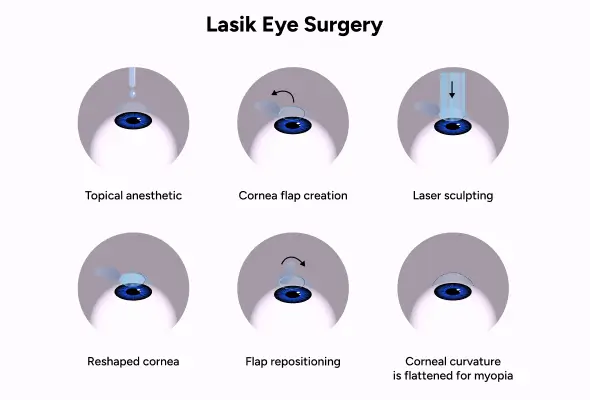
Do you feel heard? Is your surgeon willing to answer questions and explain options?
Good communication is key. Your surgeon should:
- Explain the procedure in simple terms
- Discuss risks openly
- Help you choose the right LASIK variant
- Set realistic expectations
You should never feel rushed or pressured.
Laxmi Eye Hospital has been a trusted name in eye care in Mumbai for over 30 years, known for its experienced doctors and patient-focused care. The hospital offers advanced diagnostic and treatment services across specialties including Specs Removal/LASIK (Bladeless LASIK, ICL, IPCL, Contoura Vision), Cataract, Glaucoma, Diabetic Eye Care, Retina Treatment, Pediatric Ophthalmology, and Cornea Clinic services like Eye Donation and Keratoconus Management. Patients can access care at four convenient locations: Dombivli (SS Business Park, Gharda Circle), Kharghar (Anant CHS, Sector 4), Panvel (Mulla Hamid Road, Old Panvel), and Kamothe (Pratik Gardens, Sector 34).
📞 To book an appointment, call your nearest branch or visit the official website.
FAQs
🟦 Is LASIK painful?
No, LASIK is painless. Numbing drops are used. You may feel mild pressure, but no sharp pain.
🟦 How long is the LASIK procedure?
The surgery takes about 10–15 minutes per eye. You’ll be in the clinic for 1–2 hours total.
🟦 Can both eyes be done on the same day?
Yes. Most patients undergo surgery in both eyes during the same session.
🟦 When can I return to work?
Most people return to work within 2–3 days, depending on your comfort and the type of work you do.
🟦 Will I need glasses again?
Most patients don’t need glasses for distance vision. Reading glasses may be needed after age 40 due to natural aging.
🟦 What if I blink or move during surgery?
Modern lasers track eye movement and pause automatically, so blinking is not a concern.
🟦 Can LASIK be done if I have thin corneas?
Sometimes. Alternatives like ICL/IPCL or SMILE may be better. Your surgeon will decide after tests.
🟦 What are the side effects?
Temporary dryness, glare, halos, or slight fluctuation in vision are common but usually resolve in a few weeks.
Final Thoughts
Choosing the right LASIK centre and surgeon takes time, but it’s worth it.
Focus on experience, transparency, technology, and care. Your vision is too precious to compromise.
Ask questions. Compare options. Read reviews. Visit the clinic in person. And most importantly—trust your instincts.
Clear, hassle-free vision is within reach when you make the right choice.

